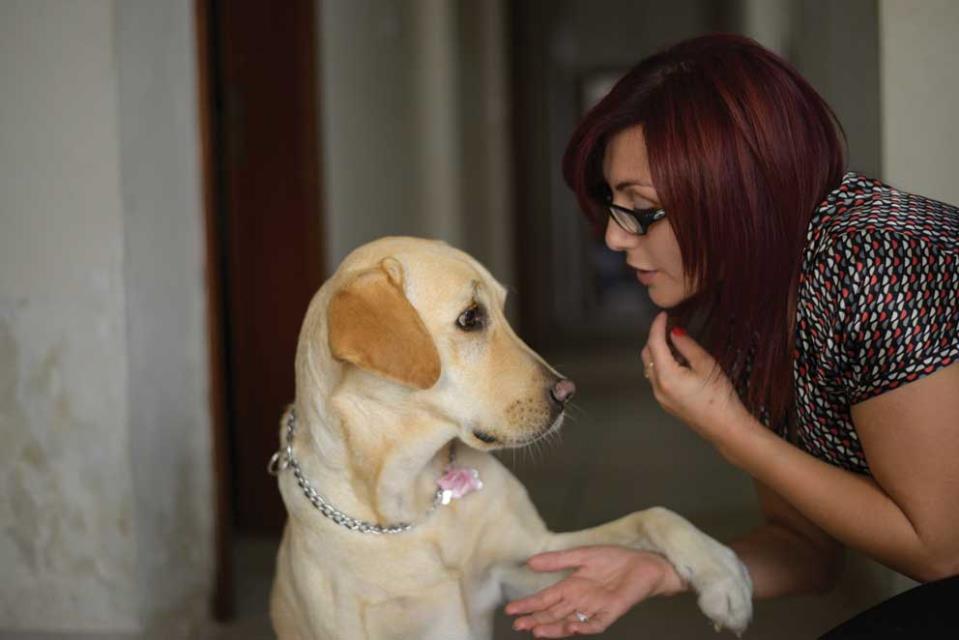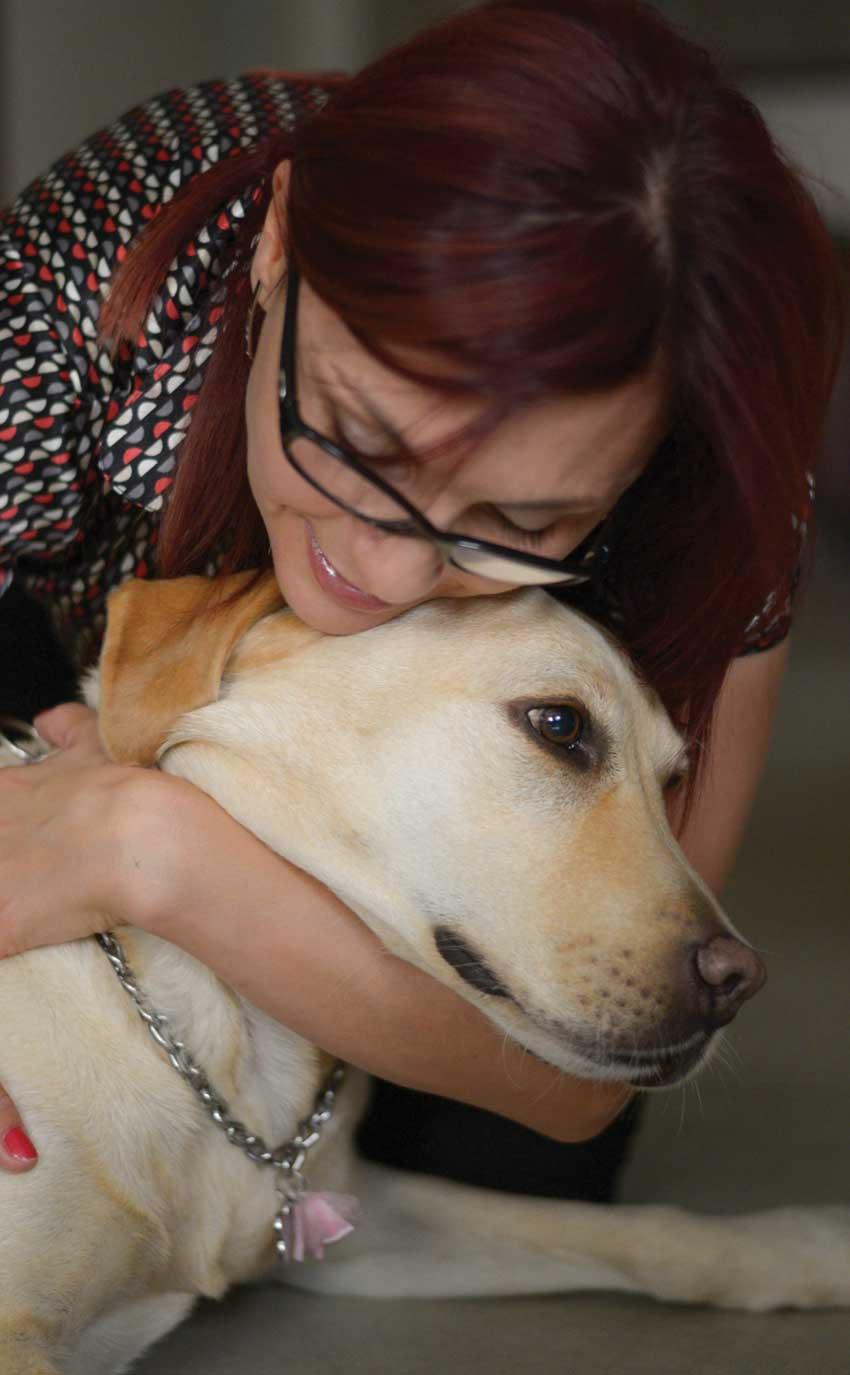I was 18-months-old when my parents noticed that I was drinking more than usual and that I was loosing instead of gaining weight. I was taken to a diabetologist, but he thought that the symptoms were due to a virus. It was not until I was taken comatose to hospital that I was finally diagnosed with Type 1 Diabetes.
Of course, I was too young to remember this, but as I got older, I remember my parents were afraid that I would get a hypo (when blood glucose levels drop and cannot provide enough energy for your body's activities) and people around me would not know what to do. My parents were also scared that if I did not pay attention to what I ate that I would suffer the consequences.
Although I was young, I knew that I was different from the other children. I could not participate in fun activities, such as going to parties, eating sweets or having sugary drinks. I often felt left out of sleepovers as my mum wanted to be able to monitor me during the night. I was permitted to eat during lessons, but if there was a new teacher, sometimes I would get in trouble, which was humiliating. My mum insisted on me wearing specific shoes, which I did not like.

As I grew older, I became rebellious and hid my condition from new friends - especially boys - because I thought that people would not accept me as I was. This was because I did not accept myself and this eventually lead me down a destructive path that included drinking and binging.
Today, I follow a healthy diet and count my carbohydrate intake, in order to make sure I take the right amount of insulin before a meal and correct my sugar levels as needed. I try to keep active by swimming in summer and - when I have time - aerobic and yoga classes, or using the treadmill and airwalker at home. I was not always able to approach my condition like this, since for so long, I neglected myself and tried to run away from reality, as I found it impossible to cope with such a restricting lifestyle.

I lived a relatively normal and healthy life until I was twenty years old and became pregnant with my twin daughters.At the time, I was unaware that a diabetic woman had to carefully plan her pregnancy. Truthfully, I used to think that I would not be able to have children because I was diabetic, a thought that would make me feel anxious, but I never shared my feelings.
I was fine for the first six months of my pregnancy, but in my seventh month, I started having complications. I was vomiting constantly, I experienced a loss of appetite and weight, blurred vision, blackouts and constant pain in my whole body. I used to fall hypoglycaemic and would spend weeks in hospital because the doctors were unable to control my sugar levels, which were unstable due to the pregnancy hormones and because I was refusing to eat.
I spent days in the hospital on a saline drip. I could not keep food in my stomach. My kidneys were failing but nothing was done, even under observation. Then, one evening, I had to have an emergency cesarean due to an alarmingly high blood pressure, a month and a half before my due date.
My twins were both on 20 August 1999, instead of their due date of 10 October. They were premature and very small. When I regained consciousness after the surgery, I was told that they were not diabetic and I felt a great sense of relief and joy. I then asked the nurse the babies sex, but fell back unconscious before I heard her reply. They were girls.
I was in the ITU for seven days after the twins were delivered as my kidneys were still not working properly. During this time, I had still not held or even seen my babies. I was on morphine and this made me feel confused and depressed. I had very high blood pressure, which caused migraines and nausea. I missed out on those joyful first days of motherhood.
When I was taken to the postnatal ward, I was still vulnerable and had serious health problems. My blood pressure refused to stabilise and I ended up in Cardiac Critical Care Unit after experiencing a fit in the middle of the night. After being given the correct treatment, my health slowly started to improve, but I still felt unwell. I was depressed and I missed my family. I used to worry that I would never get out of my hospital room. I remember my mum bringing me homemade meals to try and cheer me up.
One morning, my eyes started bothering me. My vision was blurred and I felt disoriented. The nurses sent me for a check up and I was put under the care of one of the best ophthalmologists at that time because I was rapidly losing my eyesight. I was given laser treatment while still in hospital. I remember that the doctor was very angry that my eyes were not checked during my pregnancy, which is meant to be routine for a diabetic women.
Finally, a month and a half after I was admitted, I was discharged from hospital. I went back home and received a great deal of support from my husband, family and friends. It was difficult to care for twin babies with my eyesight failing. I continued going for laser treatment, but my retinal detachment was so advanced that I had to have surgery. I remember having to change the date of my daughters's baptism because of the surgery. I remember it was Good Friday.

My last operation in Malta was inthe following July, nearly a year after my daughter's birth. The surgery was completed by an American surgeon, who had flown over specifically to assist in the operation. Then, I lost sight in my right eye completely. I started travelling and had several operations at Moorefields Hospital in the UK. Today, I am left with only 20% vision in my left eye and am undoing treatment in an attempt to preserve it.
Once again, my life hadtaken another unexpected turn. I went from an independent, bubbly and spontaneous person, to needing someone to hold my hand outside, to read everything for me, to do my shopping and take decisions in my place, even the most personal ones. I was devastated and bitter - I would often get into arguments with those closest to me out of pure frustration.
With a lot of love, acceptance and true understanding, my husband and my mum were able to get me back on my feet. And I suppose, even myself. I focussed on my two precious baby daughters - I focussed on how much they needed their mother. This realisation was the wake up call that I needed and I focussed on being a good parent to them in whatever way I could. I had to learn a new way of communicating using other senses, such as hearing, smell and touch.
After the initial trauma of becoming visually impaired, I found the courage to start introducing myself to the blind community in Malta. I have a job at the Birkirkara Local Council - thanks to technology and the aid of my precious guide dog, Winny (who avoids obstacles for me and has learned our everyday routes to guide me safely to my destination).I have helpful superiors and colleagues, who make me feel included in the team. I use public transport and am very independent in many ways. Recently, I challenged myself to attend a conference in Paris unaccompanied and this was a great success for me.
I have become a stronger person since losing my sight and I am more independent now than ever before. I have a strong faith in God and keep close to his word and often revert to the Bible to find answers and advice. The Lord speaks to me in many ways and provides guardian angels disguised as friends and family to help me pull throughout my day. I am nothing without Him and I believe that after this short life, my health will be restored to me and I will be made whole again. It is this ray of hope that keeps me going.
One of my greatest passions today is spreading awareness. I feel that it is important to share my experience. Statistics show that 10 out of 100 people have diabetes in Malta. I wish there was more government assistance for families who have been hit by hard realities such as mine. I hope that policy-makers recognise the importance of diabetes awareness in order to help people who may tend to neglect his or her treatment. I also do voluntary work with the doctors and staff at Mater Dei in both the diabetes and ophthalmic units. I am also taking part in a parliamentary working group focusing on diabetes and who meet monthly in Parliament.
If my words have the potential to help someone who is also struggling with diabetes, then my advice is this: you should always seek advice when in doubt and not be afraid to try new cures. You should feel comfortable with your consultant and if you do not, make a change. You should not be afraid to ask questions and feel free to make mistakes. The worst thing that a diabetic can do is to live in denialand so if psychological help is needed, do not be afraid to seek it. Do not be afraid or feel limited - diabetics can enjoy life too.
What I have learned is that one cannot let a condition like diabetes become a disability. You can live a normal life with this condition, but it can becomes a disability if you are neglectful with your physical and mental health.
--------
Christine would like to thank the staff, doctors, practitioners and consultants at Mater Dei Hospital for their hard work and support of diabetic patients such as herself
Read more in the November issue of FIRST magazine